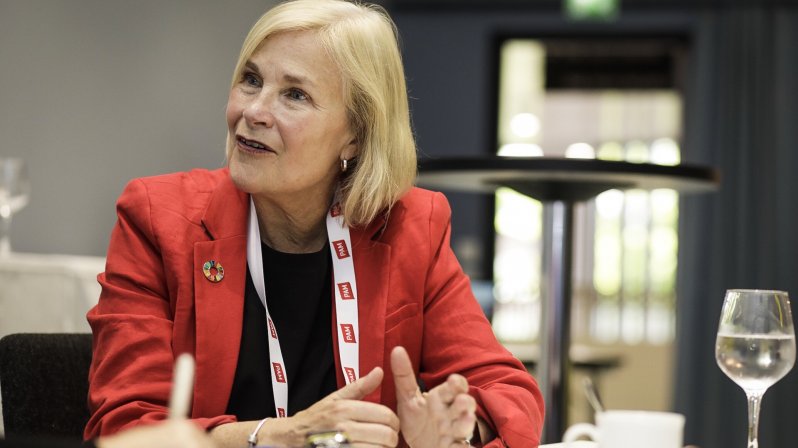The biggest threats for workers - UNI leader Christy Hoffman lists epic labour market challenges of this decade
According to UNI Global Union General Secretary Christy Hoffman, the biggest threats for workers have to do with inequality and erosion of employment.
The raging income and wealth inequality. We see this phenomenon of wealth inequality all over the world, and it exists within countries and between countries. Inequality comes down to the fact that the labour share of the global economic pie is shrinking in developed and in developing countries. All the growth in the economy is going to that top 1 percent or 10 percent. Workers are not getting their fair share and this inequality drives so many other social consequences.
The erosion of employment. The standard form of employment that we came to know of as permanent employment or open-ended employment, i.e. full time work, is decreasing. Now we see so many other forms of work relationships. You are subcontracted or self-employed or working for an agency. That is not driven by technology, it is a choice made by employers, because it is allowed. This is the biggest threat that workers face globally because this irregularity or nonstandard becomes common place. It really erodes everything the union movement has worked for in decades in regard of creating rights that are attached to employment.
Time sovereignty and working hour imbalance. Related to that, is the question of so many workers getting too few hours of work, and so many workers getting too many hours. There is no balance. At times, the ones who do have full time work, are being pressured to work more and more hours, and then those ones with part-time work or on demand work, are often getting zero hours contracts. These workers are not guaranteed anything. What kind of work does that allow? No secure income and no family life etcetera. The working hours are often connected to the above mentioned erosion of employment, but still considerable factors.
Stagnated wage increase. The fact is that wages have been so flat over the past decade. They are not budging and workers are stuck. On the other hand, there is an ongoing inflation and living costs are getting higher. The fact that wages are being flat, precarity and insecurity are problems of today’s working life, are things that people do identify. Suddenly the work is gone, and it is being done by a contractor instead. This challenge relates to the issue of inequality, though it is specifically around wages.
Worldwide union building. It is getting more difficult for workers to create unions in countries where workers are not already covered by collective bargaining agreements. This is not getting easier anywhere in the world. Take Asia for example, where there is a company growth boom right now, and where it is extremely hard to create unions across the whole continent. The single biggest challenge for UNI Global Union is to try building unions across the world. In Bangladesh, UNI struggled to get a union recognized for seven years. Mind you, the company was owned by a Norwegian company and had 3 000 workers out of which 70 percent wanted a union. Now, we are just getting the union registered after a seven-year long struggle. The workers really hang in there!
In conclusion, when work is shifting away from permanent jobs into new places and forms, where work is not any longer organized, unions have to follow the work.
Christy Hoffman was elected, in June 2018, as General Secretary of the UNI Global Union, a federation of 20 million service workers from more than 150 countries.
Text:: Marie Sandberg-Chibani



